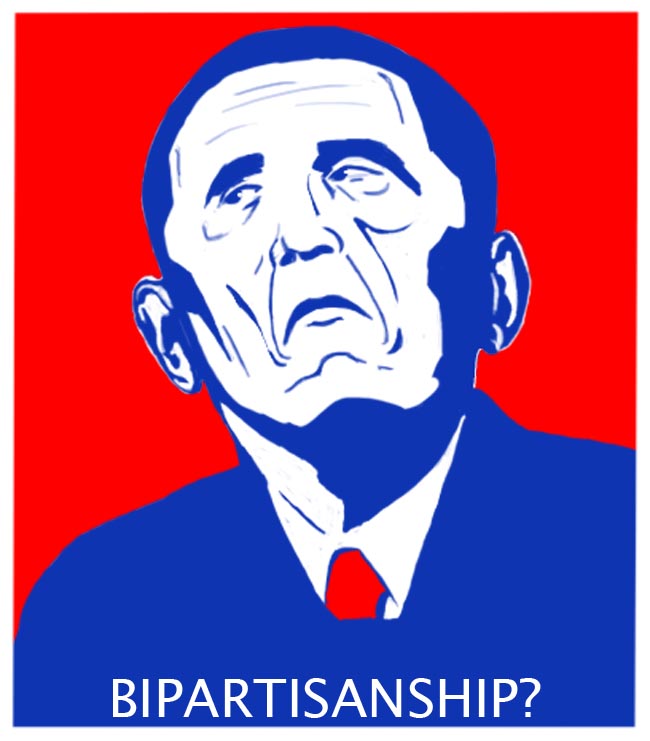The president’s sixth State of the Union Address was a decidedly bold speech. If it was all you had to go by, you might have thought that the Democratic Party controlled both houses of Congress. But of course that’s not the case. Republicans now hold majorities in the U.S. House and Senate and 31 state legislatures around the country.
Nevertheless, after taking a victory lap on the economy, President Obama talked at length about his own domestic policy ideas and used the opportunity to make strong veto threats to Republicans. It all seemed a bit preemptive. I’ve spoken with other government majors at the College of William and Mary who, like me, are disappointed that the president didn’t say much in the way of foreign policy, but hey, I guess it’s better to play to one’s strengths.
The president’s speech was a confusing mixture of push and pull that he capped off with a longwinded appeal for bipartisan civility. This portion of the speech was reminiscent of Obama’s speech at the 2004 Democratic National Convention, which brought him to national prominence. The two speeches used similar language — calling for an end to the bitter partisanship — but this recent speech sounded much more tired than it did in ’04.
The 2015 State of the Union Address was out of step with the country, and the president’s olive branch seemed more like a rhetorical gesture undercut by his political record. He’s fiercely partisan and a competitor at heart. After the carnage of the 2012 campaign, I find it difficult to understand how Obama can actually imagine himself to be above the partisan fray.
The last four years have been incredibly frustrating for everyone — a divided Congress made governing nearly impossible, and Obama issued more presidential memoranda than any president before him — but elections shape the policy agenda, and voters are expecting the president to do a better job of integrating Republican priorities. This speech was a missed opportunity to substantively bridge that gap.
President Obama presided over a Democrat-controlled Congress for his first two years in office when he passed his signature health care reform. Republicans captured the House in 2010, and that’s when gridlock became inescapable. President Obama’s unilateral actions to circumvent the “do nothing Congress” were lamentable, though politically understandable. But now that Republicans control Congress, Obama should recognize their legitimacy and allow them the space to work on their own policy agenda — in the end it’s still pending his approval.
I hope that I am wrong and that President Obama is committed to what he said about bipartisan cooperation. Here at the College, Democrats and Republicans work together both professionally and as friends all the time. There are a lot of areas where we can find common ground, but we have to respect each other’s differences and find solutions that are equitable for both parties and their respected constituencies. It could mean that we won’t always get all of what we want, but that doesn’t mean that we should pull up short before we find a better way forward.
Email Henry Longley at hwlongley@email.wm.edu.


































Well said Henry. Wm and Mary is lucky to have you around.